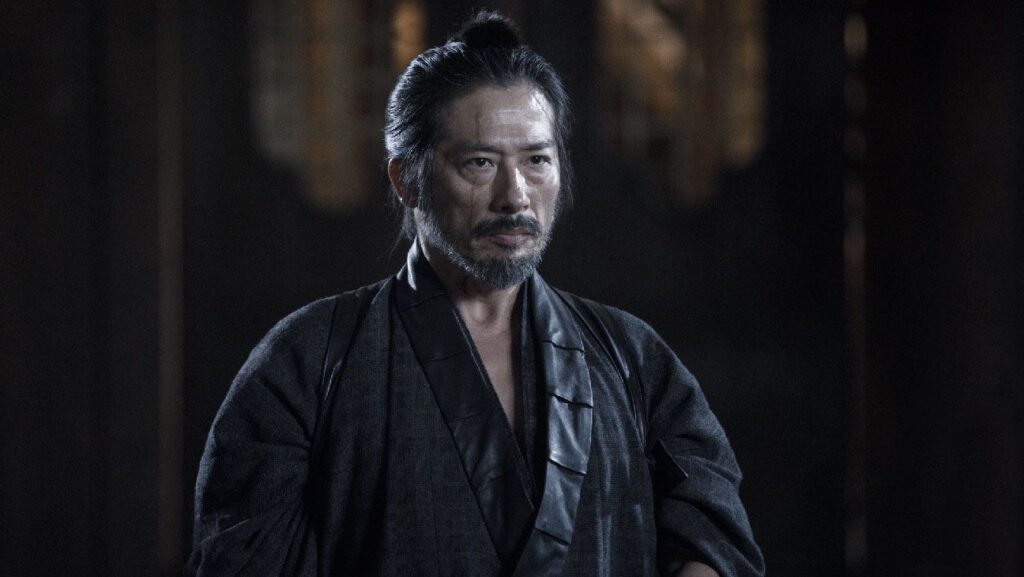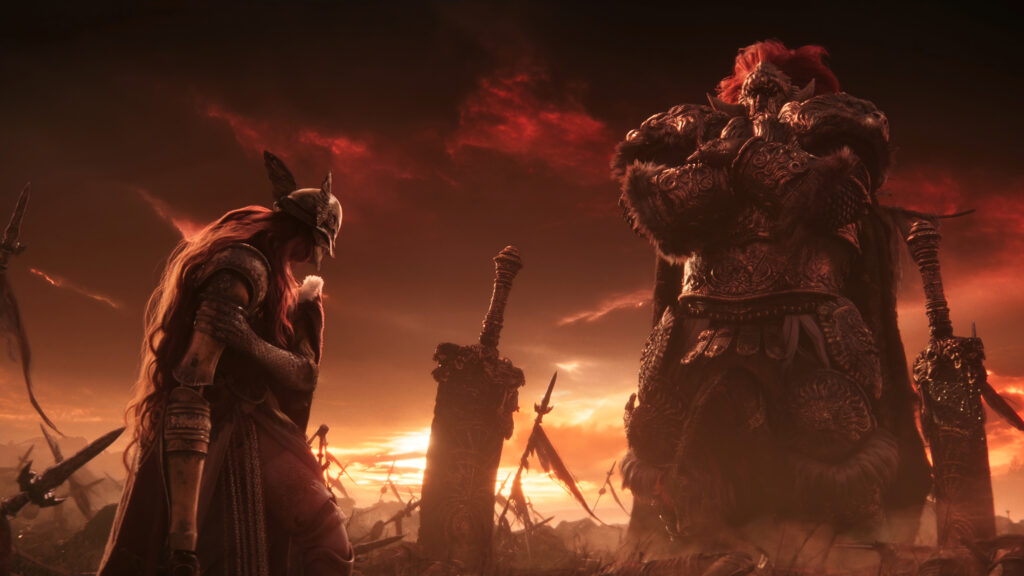Peering into the Abyss: A Deep Dive into the Twisted World of Serial Killer on Television
What is it about serial killers that fascinates us so deeply? Some argue it’s rooted in an evolutionary impulse, a way to sharpen our senses and identify potential threats. Whatever the reason, our obsession with these macabre tales has fueled the rise of the true crime subgenre, particularly in the realm of television. From gripping police procedurals to psychologically intense thrillers, here’s a comprehensive look at the top serial killer shows that have captivated audiences across platforms.
Mindhunter (Netflix):
Mindhunter plunges viewers into the chilling world of serial killers, where they become companions to FBI agents Holden Ford and Bill Tench on their enthralling journey through the labyrinth of criminal profiling. Through meticulously crafted interviews with notorious figures like Edmund Kemper and David Berkowitz, the series intricately weaves a narrative that blurs the lines between fiction and reality, leaving audiences on the edge of their seats. Beyond mere portrayal, Mindhunter humanizes the darkness by delving into the intricate psyche behind each serial killer’s actions, unearthing their childhood traumas, societal influences, and psychological motivations. This approach raises unsettling questions about the nature of evil and the delicate balance between sanity and madness. While the gripping interviews with serial killers captivate attention, it’s the richly developed characters of Holden and Bill that truly anchor the series. Holden’s relentless pursuit of knowledge and Bill’s pragmatic approach create a compelling dynamic, with the show delving into their personal struggles and the toll of their work on their psyche. Set against the backdrop of the late 1970s, Mindhunter transcends mere crime thriller, offering viewers a meticulously crafted historical drama that vividly depicts the emergence of criminal profiling within the skeptical corridors of the FBI. This attention to detail adds depth and authenticity to the narrative, immersing audiences in a bygone era. Mindhunter’s haunting portrayal of real-life serial killers leaves an indelible mark on viewers, prompting introspection on the complexities of human nature and the chilling depths of criminal psychology.
Monster: The Jeffrey Dahmer Story (Netflix):
In its portrayal of Jeffrey Dahmer’s crimes, “Monster” maintains a delicate balance, presenting the disturbing realities of his actions without sensationalizing them. Rather than focusing solely on the graphic nature of his crimes, the series uses these moments to underscore the chilling impact on both the victims and their families, emphasizing the emotional toll of Dahmer’s atrocities. Shifting Perspectives: What sets “Monster” apart is its multi-perspective approach, which delves into the lives of Dahmer’s victims, their loved ones, and those who sought to stop him, such as Glenda Cleveland. By reframing the narrative to include these voices, the series sheds light on the systemic failures that allowed Dahmer’s killing spree to persist unchecked. Examining the “Why”: While not excusing Dahmer’s actions, “Monster” endeavors to understand the underlying motivations behind his crimes. Through exploration of his troubled upbringing, dysfunctional family dynamics, and mental health struggles, the series offers a nuanced portrayal of a complex individual on a path toward monstrosity. However, it steadfastly avoids glorifying Dahmer or offering simplistic explanations for his behavior. More Than Just a Serial Killer: “Monster” transcends the portrayal of Dahmer as a mere monster, revealing glimpses of his humanity and moments of vulnerability. This complexity challenges viewers to confront their own perceptions of good and evil, unsettling their understanding of the human psyche. Sparking Conversation: Far from mere entertainment, “Monster” serves as a catalyst for important social discourse. By addressing issues of racism, homophobia, and systemic failures in the justice system, the series prompts viewers to critically examine these pervasive societal issues and their enduring ramifications.
The Fall (Netflix):
“The Fall” transcends the typical cat-and-mouse dynamic between detective and serial killer, delving instead into the chilling depths of Belfast’s underworld, where the hunt for a serial murderer evolves into a psychological duel between two intricately complex characters. At the forefront is Stella Gibson, a sharp-witted detective hailing from London, whose relentless pursuit of justice is veiled by her own personal demons. Driven by a mix of empathy and daring, she ventures fearlessly into the shadows, blurring the lines between predator and prey. Opposing Stella is Paul Spector, an outwardly ordinary man concealing a monstrous secret. Rather than vilifying him, the show meticulously peels back the layers of his troubled past and fractured psyche, unveiling his chilling rituals and the eerie contrast between his facade and his true nature. This dual persona perpetuates an unsettling aura of uncertainty, leaving viewers questioning the authenticity of every interaction. Yet, “The Fall” extends beyond mere pursuit, delving into the profound ramifications of violence on both victims and those seeking justice. Stella’s personal sacrifices and internal struggles underscore the toll of her relentless quest, while the series casts a revealing light on the societal backdrop of Northern Ireland, exploring the challenges faced by women and the intricacies of law enforcement in a fractured community. Imbued with palpable suspense, each encounter between Stella and Paul crackles with unspoken tension, propelled by a slow-burning narrative that forces viewers to confront the unsettling intricacies of the serial killer’s psyche. Ultimately, “The Fall” emerges as a haunting exploration of the timeless struggle between good and evil, leaving an indelible impression on audiences as they grapple with the enigmatic depths of human nature and the chilling allure of a serial killer’s mind.
True Detective (HBO):
“True Detective” transcends the boundaries of traditional anthology formats, morphing into a multifaceted exploration of darkness both within and beyond the cases it presents. Each season unfurls like a feverish dream, steeped in the humid atmosphere of the American South (and beyond in Season 3), ensnaring viewers in the intricate web of new detectives haunted by their own demons as they pursue elusive serial killers through twisted landscapes. Yet, the series delves deeper than mere crime-solving, delving into the soul-crushing impact of the relentless pursuit. Characters like Rust Cohle (Matthew McConaughey) and Marty Hart (Woody Harrelson) in Season 1 epitomize this struggle, with Cohle, a nihilist philosopher tormented by personal tragedy, viewing the case as a glimpse into the abyss, while Hart, a flawed family man, grapples with the darkness it exposes within himself and the world. Their contrasting perspectives fuel a captivating dynamic, mirroring the eternal struggle between light and darkness at the show’s core. Unflinching in its portrayal of graphic violence and disturbing themes, “True Detective” compels viewers to confront uncomfortable truths about human nature, the cyclical nature of evil, and the corrupting influence of power. Its intricate plots interweave philosophical undertones, religious symbolism, and occult imagery, cultivating a lingering sense of unease. Yet, it’s not solely the darkness that captivates; the series boasts stellar performances, with actors like Mahershala Ali, Rachel McAdams, and Vince Vaughn imbuing depth and complexity into their characters. Atmospheric visuals and haunting soundtracks further immerse viewers in the desolate environments and psychological turmoil of each investigation. Ultimately, “True Detective” isn’t just about catching serial killers; it’s about the enduring scars they leave on both the detectives and the audience. Provoking introspection, it leaves viewers questioning the nature of good and evil, the fragility of sanity, and the eternal power of darkness that lurks within us all.
The Killing (Netflix):
In the mist-laden streets of Seattle, “The Killing” unfolds with a deliberate and methodical pace, echoing the painstaking journey for justice following the murder of a young girl. Each episode, meticulously confined to a single day, serves to heighten the emotional intensity of the narrative, transforming the series into a pressure cooker of raw emotions and gripping suspense. Sarah Linden, a seasoned detective grappling with haunting past failures, and Stephen Holder, her enigmatic and streetwise counterpart, embark on a relentless investigation that unravels a tangled web of secrets ensnaring grieving families, corrupt officials, and a cunning serial killer lurking in the shadows. Far from romanticizing police work, the series authentically portrays the gritty realities of the profession – the endless hours, the frustrating dead ends, and the profound toll it exacts on both the detectives and the community they serve. Beneath its procedural exterior lies a poignant exploration of grief, loss, and the fragile glimmer of hope that perseveres in the relentless pursuit of truth, even when justice appears to be but a distant and elusive dream.
Hannibal (NBC):
In the intricate world of “Hannibal,” the boundaries between predator and prey blur into an unsettling dance of psychological manipulation and seductive darkness. The series immerses viewers into the chilling psyche of Dr. Hannibal Lecter, a brilliant psychiatrist who conceals his cannibalistic tendencies beneath a facade of sophistication and refinement. Opposing him is Will Graham, an FBI profiler with an uncanny ability to empathize with even the most disturbed minds. This gift, however, becomes both a blessing and a curse as it draws him deeper into Lecter’s twisted orbit, where he becomes both a patient and a pawn in the psychiatrist’s macabre game. At the heart of the series lies the mesmerizing and complex relationship between Lecter and Graham, a captivating tango of fascination and repulsion, trust and suspicion. Yet, “Hannibal” transcends simplistic notions of good versus evil, delving instead into the intricate depths of its characters’ psyches. It meticulously unravels their past traumas and motivations, blurring the lines between hunter and hunted as Will’s empathy becomes both a tool and a burden, while Lecter orchestrates chaos with chilling precision. Visually stunning and hauntingly beautiful, each episode of “Hannibal” becomes a sensory feast, where meticulously crafted meals serve as harrowing reminders of the horrors they conceal, and the atmospheric score mirrors the inner turmoil of its characters. Beyond its surface as a crime thriller, “Hannibal” emerges as a profound psychological odyssey, challenging viewers to confront the darkness lurking within themselves and the fragile boundary that separates sanity from madness. It is a series that lingers in the mind long after the credits roll, prompting introspection on the complexities of human behavior and the true cost of understanding the monstrous within us all.
Bates Motel (A&E):
Nestled in the desolate shadow of the ominous Bates Motel, “Bates Motel” orchestrates a twisted symphony of psychological horror, delving deeper than its predecessor, Hitchcock’s iconic “Psycho,” to unravel not just the mind of a monster, but the very genesis of its creation. Vera Farmiga commands the screen with a tour-de-force performance as Norma Bates, a complex and fiercely protective mother whose suffocating maternal control and buried secrets serve as the catalyst for her son Norman’s burgeoning darkness. Their co-dependent relationship becomes the fulcrum of the show, a toxic blend of love, manipulation, and unspoken truths that gradually warp Norman’s fragile psyche. Freddie Highmore’s portrayal of Norman is equally mesmerizing, capturing the subtle fractures in his innocence as he grapples with the complexities of adolescence, burgeoning sexuality, and a mother whose love feels more like a suffocating cage. “Bates Motel” fearlessly delves into the psychological traumas that shape Norman’s harrowing descent, from his father’s absence to the stifling grip of his mother’s control, and the ominous secrets lurking beneath seemingly mundane events. Each episode peels back another layer of the enigmatic mystery, blurring the lines between reality and Norman’s increasingly distorted perception. The series masterfully cultivates suspense, intertwining psychological unease with Hitchcockian nods and moments of visceral terror, while the quiet town harbors its own sinister secrets, adding further complexity to the narrative. Ultimately, “Bates Motel” transcends mere prequel status, serving as a chilling exploration of the darkness that can fester within any family, the profound impact of trauma, and the haunting notion that monsters may not be born, but rather crafted by the crucible of their experiences.
Dexter (Showtime):
Dexter Morgan, the blood spatter analyst harboring a dark secret, defies the mold of a typical television protagonist. By day, he meticulously analyzes evidence, aiding in the incarceration of criminals. By night, he transforms into the “Dark Defender,” ruthlessly pursuing and dispatching those who elude traditional justice. Yet, Dexter adheres to a rigid code instilled by his late father, Harry – his kills are reserved exclusively for those who have unjustly taken innocent lives, blurring the moral boundaries and thrusting viewers into an intricate ethical maze pondering the possibility of justifiable murder. Michael C. Hall’s captivating portrayal delves deep into Dexter’s internal conflict, portraying his perpetual struggle against his own inner darkness while yearning for a semblance of normalcy through the facade of a conventional life. Complicating matters further is Dexter’s foster sister, Deb, an astute detective whose unwitting proximity to her brother’s clandestine activities intersects with her relentless pursuit of justice, unraveling a richly layered relationship imbued with affection, suspicion, and shared shadows. “Dexter” fearlessly ventures into uncomfortable terrain, challenging societal norms and probing the efficacy of conventional justice systems, all while compelling viewers to grapple with Dexter’s morally dubious actions, prompting a disquieting yet enthralling exploration of morality and the depths of human darkness. Ultimately, “Dexter” transcends its premise as a mere tale of vigilante justice, emerging as a gripping psychological thriller that forces introspection, blurring the lines between heroism and villainy, and leaving audiences to confront the unsettling prospect of their own latent darkness.
Millennium (Fox):
In the eerie liminal space between reality and the unseen, where shadows whisper of impending apocalypse, “Millennium” looms ominously. This haunting series follows Frank Black, a troubled ex-FBI agent plagued by haunting visions and inexorably drawn to unraveling unsettling crimes steeped in the occult and supernatural. Far transcending the boundaries of a mere procedural cop drama, “Millennium” delves deep into the abyss of the human psyche, plumbing the depths of despair, the allure of conspiracies, and the chilling notion that sinister forces manipulate humanity from realms beyond our comprehension. Lance Henriksen’s riveting portrayal of Frank Black paints him as a tormented soul grappling with his own inner demons. Haunted by his traumatic past and burdened with foreboding visions of future atrocities, he reluctantly becomes a conduit to the macabre. Each episode thrusts him into a harrowing labyrinth of investigations, confronting serial killers driven by apocalyptic visions, clandestine cults guarding ancient secrets, and malevolent entities blurring the boundaries between myth and chilling reality. “Millennium” expertly intertwines a chilling atmosphere with intricate character dynamics. The enigmatic Millennium Group, Frank’s elusive employer, stands as a beacon against encroaching darkness, yet their motives remain veiled in secrecy. Meanwhile, Frank’s relationships with his steadfast partner Peter Watts and his wife Catherine serve as lifelines amidst the chaos, each wrestling with their own inner turmoil while steadfastly supporting him. Not for the faint of heart, “Millennium” confronts viewers with profound questions about faith, free will, and the pervasive influence of darkness over even the most steadfast souls. Unflinching in its portrayal of disturbing imagery and unsettling themes, the series immerses audiences in an unforgettable, spine-chilling odyssey that reverberates long after the final credits roll, leaving them to ponder the fabric of reality and the unseen forces that may shape our very destinies. This enigmatic masterpiece transcends the confines of conventional crime dramas, emerging as a chilling exploration of humanity’s darkest depths and the clandestine forces that may ultimately define our existence.
The Bridge (FX):
In the stark expanse where Denmark meets Sweden, a grisly discovery unites two nations: a body meticulously placed on the Øresund Bridge, straddling the border, igniting an unexpected cross-cultural collaboration. Enter Saga Norén, a brilliantly analytical yet socially awkward Swedish detective, and Martin Rohde, a seasoned Danish investigator grappling with personal demons. Their divergent approaches spark both comedic and dramatic tension as they navigate political rifts while pursuing a serial killer who revels in blurring boundaries. “The Bridge” transcends conventional detective narratives, weaving a complex tapestry of suspense that delves deep into cultural clashes and latent prejudices threatening to thwart the investigation. Saga’s portrayal with autism spectrum disorder offers a unique perspective, illuminating societal norms and communication gaps often overlooked. Meanwhile, Martin confronts his own biases and shortcomings, compelled to reassess his beliefs in collaboration with Saga. Each episode unveils new suspects, hidden truths, and the chilling motivations behind the crimes, blurring the lines between hero and villain, victim and perpetrator. Against the backdrop of Nordic landscapes, the series juxtaposes the characters’ inner turmoil, crafting a hauntingly beautiful setting for the unfolding drama. Beyond a mere pursuit, “The Bridge” serves as a poignant commentary on globalization, communication barriers, and the universal yearning for connection amidst cultural disparities. It challenges viewers to confront their own biases and trust, compelling introspection on the lengths individuals will go to for justice. Ultimately, “The Bridge” is not merely a destination; it’s an evocative journey prompting viewers to reevaluate their perspectives and contemplate the ties that bind us, even in the face of profound darkness.
In conclusion, the fascination with serial killers in television reflects a broader cultural intrigue with the darker aspects of human nature. From psychological thrillers to gritty crime dramas, these shows offer audiences a voyeuristic glimpse into the minds of serial killers, challenging us to confront our deepest fears and moral dilemmas. Whether we watch out of curiosity, catharsis, or sheer fascination, one thing remains clear: the allure of the serial killer genre shows no signs of fading anytime soon.
Check out more serial killer shows from here.
Take a look at our latest post about Top 10 Best Serial Killer Movies.




